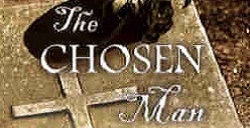

From The Empress Emerald
Bombay, 1912
Leo kept a pet python and fed it on frogs. It was not a wholly benevolent arrangement; the python was expected to guard Leo’s treasure. The treasure was in a biscuit tin. On the lid of the tin there was a lady in a poke bonnet and a young man in plus-fours riding a penny-farthing bicycle. The decoration meant nothing to Leo; he was only interested in the tin’s contents. The tin and the python lived in the hollow bole of an upside-down banyan tree in the orphanage grounds.
One illicit evening, while eating sweet pastries in the bazaar, Leo heard an old man spinning yarns for his supper. He talked of the fabulous wealth of the independent princes. They had palaces three miles long and electricity and telephones (he called them speaking machines) and white concubines. They were so rich they kept their treasures under nests of cobras. They had so many rubies and diamonds, the old man said, they only knew they had been robbed when a thief dropped down dead before their very eyes. This, thought Leo, was a splendid idea, and the python had been in the banyan maze for years.
The following Sunday afternoon, he and Skinny Eddie Sartay walked out of the orphanage servants’ entrance, down to the dead-end of Lime Grove, then cut off down a rough track leading into the tall grass of India. They passed a group of houses, where chattering children played around women bent over cooking pots, and went on until they came to a track bordering a rice paddy. They were on a frog hunt. They were of course expressly forbidden to leave the orphanage unsupervised, and under no account was any boy ever allowed out on the Sabbath, but Leo had to go frog hunting. Sunday afternoon was best – watchful masters snoozed, so he only had to give his bored dormitory companions the slip, which was usually quite easy. He played the role of the dorm fat boy to perfection. The butt of jokes and jibes, Leo was quite content to demonstrate how little intelligence he possessed. It was a relatively painless means of liberation. He kept Skinny Eddie as his best friend because boys who were loners aroused suspicion. Loners were scrutinised. Leo had also, reluctantly, come to accept that lone frog hunting was unwise. Not all snakes were as benign as his python. If he were to be bitten, his companion could run for help. Or, better still, his companion would be bitten instead.
“What d’you want frogs for, Leo?” Skinny Eddie asked, skipping along beside his big friend.
“To put in Matron’s bed.”
“Oh.”
They ambled on down the track to where a dike would keep them out of sight. It meant walking one leg up, one leg down, along the slippery embankment, tricky but fun. Hiding in flat scenery had its challenges. For some time they crouched and grabbed, splashed and squelched, until Leo’s dirty linen bag was bulging with juicy frogs. Then they climbed up onto the top of the muddy bank and shared one of the Latin master’s evil cheroots. Skinny Eddie was sick almost immediately so Leo finished it off while poking his bag now and again to make sure the fodder was still alive and kicking.
“Hey,” said Skinny Eddie, pointing, “Look.”
Two memsahibs were strolling down the track, twirling frilly parasols. They were very pink in the face and giggling like schoolgirls. Leo pulled Skinny Eddie down into the warm mud and the women passed them by. Then Leo was up out of the mud and mincing at a safe distance behind the mems – an imaginary parasol in one hand, his precious bag of frogs tucked onto his hip like a baby.
“Now then, young Sartay,” Leo declared, “Recite me your nine times table and you shall have jelly for tea.”
“One nine is nine, two nines are nineteen, three nines are . . .”
Leo slapped his free hand over his chum’s mouth, “Get down!”
One of the women had dropped her parasol and bent down to tie a bootlace. Across the tall grass on the other side of the paddy there was a dark ripple, a breeze of movement on a windless afternoon. The boys froze, watching a ridge of dark spots shimmer closer and faster in the direction of the women. Suddenly the boot-tying lady sat down on the track, laughing. And then she wasn’t laughing, because she too had seen the grass move.
“Aaaaaagghhh,” screamed Leo at the top his voice, charging towards the women.
“Aaaagghh! Yeaaaayy!” He was running full tilt, waving his arms in the air. The leopard burst out of the grass and leapt straight over the track, down onto the other side and into the paddy. Leo stopped. Nobody moved. The air stood still. Then the lady on the ground slowly raised a hand. Leo looked down at her, “I think it’s gone,” he said.
Copyright © A.M.Arredondo. All Rights Reserved.









